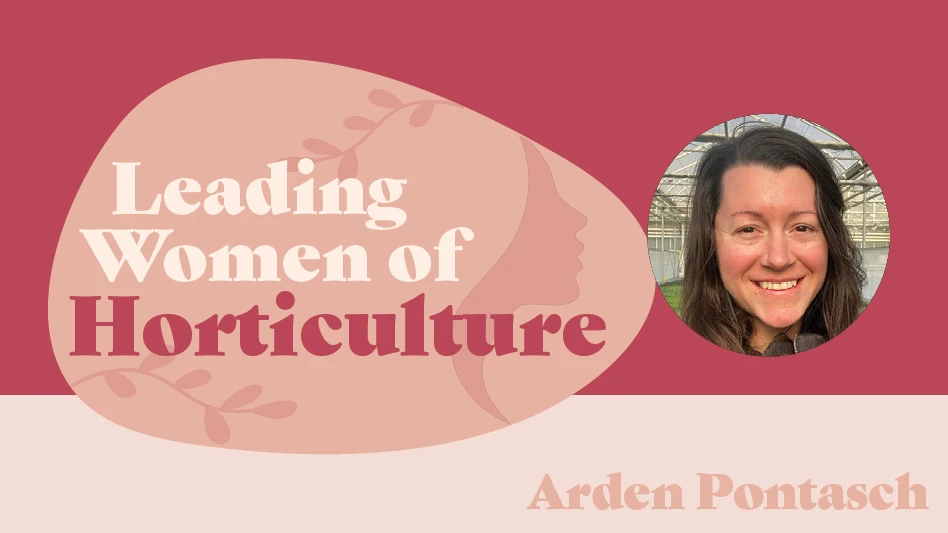
Adobe Stock
Maybe David Bowie could see into the future when he penned the song “Changes.” Maxwell Luthy gave 2020 TPIE (Tropical Plant International Expo) goers a look into the future, too. He is the global director of trends and insights at TrendWatching, a global trends firm and the author of “Trend-Driven Innovation.” The key trends he covered at TPIE were plants, people and prosperity.
So, what does that mean for the industry as a whole, not just the green industry segment? Key factors include new regulations, trade wars, climate changes and new technology. A great example of the latest technology he presented was the analogy of a Canadian driving his new Tesla on autopilot while flossing his teeth. With new technology, there is a learning curve, and sometimes it doesn’t encourage the right behavior. He pointed out that we are the same old humans with the same old needs, but it is very easy to feel overwhelmed.
“When change bumps up against core human needs it creates tension,” Luthy says.
Innovations can resolve that tension and create new expectations for us, he adds.
Some examples are the DNA tests that are available to us. We can find our long-lost relatives and check our ancestral medical proclivities. We can now tell a machine to find us a song or turn off our lights or answer questions. We can receive money instantly from strangers. We are living in a time where technology is moving so fast that we can’t always keep up with it. He cited Amazon as an example. It started out as an online bookstore in July 1995. It had a public offering in October 1995 and is now a global behemoth that dominates in every sector of purchasing — from pharmaceuticals, books, robotics to car parts — in just 25 years. That’s less than a generation long.
Luthy says we are now competing in an expectation economy where it won’t matter if your price points are better or if you have better products: he who produces the fastest wins the race. You have to get out of your world and look at what other companies are doing to get more customers to improve your workforce and inner workings. If you aren’t a trend watcher now, you will have to become one if your company is to survive in this economy.
Other current trends Luthy points out are:
- Looking after our well-being
- Having a connection with others
- Needing support while indulging in escapism
Humans need human interaction — although some will claim they don’t need it — but it is a basic need for our health. Escapism is a way to recharge and care for ourselves during times of stress. Fantasy is a type of escapism, and it allows us to leave our reality if only for a short while. Fortnite, Second Life, Star Trek’s Holodeck or becoming Harry Potter at an amusement park is fantasy for many people, and there are as many fantasies as there are people.
So why do people want to escape? Jeff Bezos thinks a 60-hour week is good for business. Burnout is now a legitimate diagnosis according to the World Health Organization. Many businesses expect workers to be available 24/7, but employees rarely want to be “on demand.”
Self-care was the number one app trend in 2018, which tells you how people are looking for solutions for themselves. Fortunately, some companies are developing programs at work for their employees to help them through stress and burnout. Other companies are offering products to help us cope with stress. CBD oil is the new stress reliever according to manufacturers. You can buy drinks with CBD oil in them to help you relax. American Eagle Outfitters offers MOOD, a unisex line of CBD-infused lip balms, lotions, muscle balms, aromatherapy and more. Even more interesting is a line of clothing from Acabada ProActiveWear humorously called The High Life Collection. The active wear is infused with up to 25 grams of CBD oil and isn’t cheap, with a starting price for an infused sports bra fetching for $125.
But while the jury is still out on the benefits of CBD oil, Luthy points out that what the green industry offers is clearer. A randomized crossover study from the Journal of Physiological Anthropology found that interaction with indoor plants may reduce psychological and physiological stress by suppressing autonomic nervous system activity in young adults. One of the terms he uses is “Village Squared,” which uses plants to bring people and communities together. Case in point: Ikea is building a concept store in Vienna where large items will be delivered to your home within 24 hours but you can purchase small items there while you enjoy food, mingle with friends and visit the rooftop park which will be open after the store closes. What is key in this design is there is no parking for cars. Shoppers are expected to arrive on foot, by public transportation or by bicycles. Even the goliath Walmart is developing parklets at their stores where people can relax before and after shopping.
While this may sound out of this world to you, these companies are reacting to what is known as metamorphic design. In other words, it is being connected to places and people. Horti, a New York City-based company, has found a niche for those people who want plants but just aren’t sure how to care for them or which ones to choose. Horti’s ad states, “Every month, we'll send a thoughtfully curated plant kit. All kits will include a plant, along with key information to sustain it. Most kits will include our signature 6” hand-painted pot & saucer.” A year-long subscription is $264. That is $22 a month for all that information, pot, plant and delivery. A note from Horti’s CEO says, “We want you to be a successful plant parent,” reassuring the buyer of the company’s intent. One gentleman said he was concerned at first, but because of their outreach, he now has 20 plants thanks to their handholding. Another company, Bloomscapes, has “Plant Mom” who is a kindly looking white-haired lady who helps customers with their inquiries. Customers can email her and ask plant questions after filling out a short questionnaire. And they’ve captured vital marketing information, to boot.
Luthy points out there is one neglected segment of our audience — 46% of our population is over the age of 50 but only 15% of advertising includes them. Boomers brought houseplants to the forefront back in the ‘60s. Now some might need help caring for their gardens or just their houseplants. We all know the benefits of houseplants and gardening in general, so here is an untouched niche. Maybe they don’t need physical help, but they may have many questions that could be resolved through tech. Luthy says people over 50 will spend more than $84 billion by 2030 on tech products. This is a market not to be missed.
As a member of the green industry, your takeaway should be to pay attention to what is going on in the world, not just your little corner of it. Implement one or two new things into your business. You not only want to survive but thrive during the next decade.

Explore the April 2020 Issue
Check out more from this issue and find your next story to read.
Latest from Nursery Management
- Trends: Proven Winners 2025 perennial survey shows strong demand
- Online registration opens for the 2025 Farwest Show
- Sustainabloom launches Wholesale Nickel Program to support floriculture sustainability
- Plant breeding as an art
- Society of American Florists accepting entries for 2025 Marketer of the Year Contest
- American Horticultural Society welcomes five new board members
- Get to know Christopher Brown Jr. of Lancaster Farms
- American Floral Endowment establishes Demaree Family Floriculture Advancement Fund







